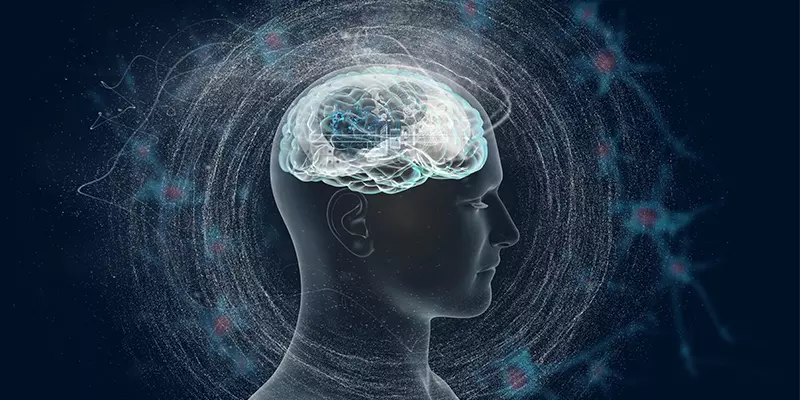
Content updated from previous publish date.
If you’re going through perimenopause or you’ve already reached the menopause, you may notice that your memory is worse than it used to be. Memory loss is one of the most common complaints among women at this important time of life. But you don’t have to be stuck with menopause-related brain fog. There are many simple lifestyle strategies you can implement now to improve your memory.
Memory loss is one of the most common complaints among women at this important time of life. But you don’t have to be stuck with menopause-related brain fog. Click To TweetHOW COMMON IS MEMORY LOSS DURING MENOPAUSE?
Memory loss and brain fog are some of the most common complaints in women in menopause. In fact, research shows that memory problems are far more common among perimenopausal and post-menopausal women than in those who are premenopausal.
For example, one study found that 62% of women in the Seattle Midlife Women’s Health Study noted cognitive decline after menopause. In particular, the most frequently mentioned problems included:
- Difficulty with word recall and number recall
- Needing to rely on memory aids
- Concentration problems
- Forgetfulness related a specific task or activity (such as, forgetting why you walked into a room)
- Forgetting events
Other studies report even higher numbers of women reporting memory loss during perimenopause and post-menopause. One such study involving 120 Australian women ages 45 to 60 found that 82% of the participants complained about memory issues, such as drops in verbal memory.
Some women worry that the cognitive decline associated with menopause is a warning sign of dementia. A 2021 study in the journal Menopause, however, shows that although approximately 33% of women had a clinically significant level of memory loss, it did not predict dementia.
WHAT CAUSES MEMORY ISSUES IN MENOPAUSE?
Research suggests there are a number of risk factors explaining why menopause leads to memory loss, brain fog, and cognitive decline.
-
Decreased estrogen:
The neurohormone estrogen is involved in many brain processes and supports cognitive function, moods, and attention. When estrogen levels fluctuate during perimenopause and drop after menopause, it impacts brain function.
-
Hot flashes:
Hot flashes cause women to feel a sudden burst of heat in the upper body that causes sweating and flushed skin. Lasting up to a few minutes, they can make you feel miserable. They can affect your verbal memory too, according to research published in 2020. This study shows that hot flashes cause changes in brain function in the hippocampus and prefrontal cortex that affects memory encoding and memory retrieval.
-
- One study looked at how hot flashes impacted memory and cognitive performance. In this study, researchers tested 68 women, ages 44 to 62, who experienced 35 or more hot flashes per week. Those women who reported more troublesome hot flashes scored worse on the tests that measured memory.
-
Night sweats:
When hot flashes occur while you’re sleeping, they’re called night sweats. The sudden heat and sweating can awaken you and interrupt your sleep. Poor sleep is a well-known cause of brain fog.
-
Depression:
According to a 2018 study, depression is common during and after perimenopause. This is troublesome because depression doubles the risk of cognitive impairment in women, according to a study in Archives of General Psychiatry.
-
Decreased progesterone:
Reduced levels of the hormone progesterone can have a negative effect on sleep patterns and can increase anxiety. Both depression and anxiety contribute to memory loss.
-
Decreased DHEA:
A precursor hormone to estrogen and testosterone, DHEA is highly protective in the brain. In particular, it helps support the major learning and memory centers in the brain. DHEA levels decline with age, which may play a role in menopause-related memory issues.
HOW TO BOOST MEMORY IN MENOPAUSE
Whatever the specific cause of memory trouble in menopause, there are some strategies women can use to boost brain function. Here are 5 tips that can help you manage menopause-related memory problems.
-
Balance your hormones.
Hormones play a vital role in brain function. When hormones are balanced, it helps your brain operate at top capacity. When there’s an imbalance in your hormones, it makes you more vulnerable to brain fog, memory problems, and other issues.
Follow brain-healthy habits to naturally balance hormones. Talk to your health care provider about bioidentical hormone replacement therapy (BHRT).
-
Eliminate hot flash triggers.
Considering that hot flashes increase the risk of memory issues, learn what’s triggering yours. Common hot flash triggers include caffein, alcohol, spicy food, tight clothing, and stress. Take note of what sparks your hot flashes and avoid those triggers.
-
Eat right to think right.
Eating a junk food diet gives you a junk food brain. High-glycemic, ultra-processed, and fast foods increase your risk of brain fog and forgetfulness. Dehydration can also steal your memory. Research shows that being dehydrated by just 2% impairs performance in tasks that require immediate memory skills and attention.
Eat a healthy diet that is high in omega-3 fatty acids. EPA and DHA are crucial for optimal brain health and are found in cold-water fish, such as salmon. Deficiencies in these fatty acids have been shown to be associated with cognitive decline in aging, psychological disturbances, depression, and many other illnesses.
In addition, drink about half your body weight in ounces every day. For example, if you weigh 140 pounds, drink 70 ounces of water per day.
-
Soothe your stress.
Too much stress exposes your brain to chemicals like cortisol that can harm the brain’s memory centers. Spend 10-20 minutes a day in meditation or prayer. They both improve blood flow to the brain, which enhances memory.
-
Fuel your brain.
Consider taking nutraceuticals to promote brain health and protect your memory. Ginkgo biloba is a Chinese herb concentrate that boosts cerebral blood flow and supports memory. Other beneficial supplements include omega-3 fatty acids and phosphatidylserine.
By engaging in these brain-boosting strategies, you can help clear menopause-related brain fog and improve your memory. This will increase your ability to continue living your best life during your golden years.
Memory loss, depression, and other mental health issues can’t wait. At Amen Clinics, we’re here for you. We offer in-clinic brain scanning and appointments, as well as mental telehealth, clinical evaluations, and therapy for adults, teens, children, and couples. Find out more by speaking to a specialist today at 888-288-9834 or visit our contact page here.





Hi I’m 47 and for ten years now I’ve ad there’s symptoms brain hurts foggy fill sick .my mind fills like exploding. My doctors are shit .all they say is I’m to young .I ad mini brake down over lose in my kids to there dad it broke me .I was alone dealing with it no one to talk to so I keep it all in so that started my hormone of I no I’m going through it .I’m gonna have my womb out before I end up in hosptale .I cry I have panictaks .I’m like a roallcoster up down and 100mph .doctor tried me on hormoan replacement but the side afects worse so I stopped I’m hanging on for my dear life .and my memory so bad .I really can’t go on like this with the covid19 I didn’t go to my check up to sceard go to hosptale in case I get it so I’m just waiting for my appointments wish wood hurry up .good luck you all you lady’s who’s suffaing we need it keep safe and pray this will give use back being our self again …candy field sorry bout my spelling
Comment by Candy field — June 9, 2020 @ 6:11 AM
The first symptom I had was losing the ability to spell, some thing I was always good at. Also could not speak well.
Comment by Emma — June 3, 2022 @ 6:19 AM
I am 68 years old and I had a TIA 6 years ago which caused me to spend a weekend in the hospital. Since that time I seem to have worsening aphasia. I struggle for words and sometimes they come out garbled. Also I have several prayers that I say with my son every night and I forget the words. This is usually preceded by flashes of light and floaters and shapes that make it seem like I am looking through cellophane. This could be menopause because I do have night sweats but I think it is related to the TIA. The question is how or can I stop it from progressing?
Comment by Adelia Lorene Hitt — November 3, 2023 @ 5:14 PM
I bought wild Yam cream which after 2 weeks I noticed no more night sweats (some occur during the day) and my memory is now sharper again. You can order it online and rub it on the abdomen. Not expensive.
Comment by Tracy VanWieren — November 4, 2023 @ 5:48 AM
I am now 61. I’ve never taken any hormones. I do take Lexapro, which halted the hot flashes back in the day. Still take it 😀. Cannabis tea also very effective with hot flashes
Comment by Mary Tawil — November 4, 2023 @ 7:23 AM
Went through Menopause at age 50. I was the one to have ALL the symptoms, the worst being emotional changes. My husband of 2 years married an angel Only to find her changed from one moment to the next. Was put on Venlafaxine ER of 225 mg. The last year I have had memory issues, except at my work, if anything they are sm. I tend to Dr. Myself because I don't want be out on anymore prescriptions that I cannot get free of.
Dr. Amen what would you suggest from your products?
Thank you
Carole Christine Flynn
Age 73.
Comment by Carole Christine Flynn — November 5, 2023 @ 10:19 AM
Dr. Amen, healthcare providers do not offer Bioidentical HRT, as it is not FDA approved. I spoke to several primary care providers and gynecologists who all said it's no possible to get BHRT through any insurance. I tried several brands offered by my gynecologists (including Premarin) and had severely negative reactions to them, assuming because those hormones are derived from horse urine. Then I tried Biote (which is bioidentical and derived from yams/soy) and got my life back! ..But have to pay out of pocket for it.
Can you give some examples of BHRT brands offered by healthcare providers?
Thank you!
Comment by Sasha N. — November 5, 2023 @ 2:27 PM
I also tried getting on BHRT. I have not been able to find a physician in my network who prescribes it. It's a dead end at every turn. Also, if I were to find one I would be paying out of pocket as I've been told it's not covered by insurance. Beyond frustrated!
Thank you, it felt good to vent!
Comment by Monika Honrath — December 2, 2023 @ 4:23 PM